
Victoria Williams is an American singer, songwriter and musician, originally from Shreveport, Louisiana, United States, although she has resided in Southern California throughout her musical career. Diagnosed with multiple sclerosis in the early 1990s, Williams was the catalyst for the Sweet Relief Musicians Fund.
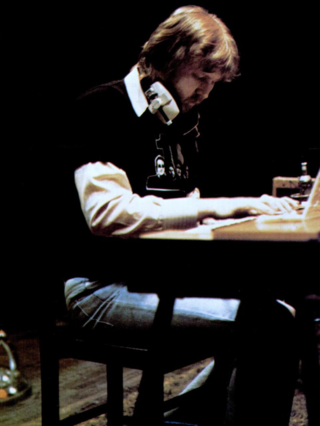
Harry Edward Nilsson III, sometimes credited as Nilsson, was an American singer-songwriter who reached the peak of his success in the early 1970s. His work is characterized by pioneering vocal overdub experiments, a return to the Great American Songbook, and fusions of Caribbean sounds. Nilsson was one of the few major pop-rock recording artists to achieve significant commercial success without performing major public concerts or touring regularly.

Child Is Father to the Man is the debut album by Blood, Sweat & Tears, released in February 1968. It reached number 47 on the Billboard pop albums chart in the United States.

Frederick William Schneider III is an American singer-songwriter and frontman of the rock band the B-52's, of which he is a founding member. Schneider is well known for his sprechgesang, which he developed from reciting poetry over guitars.
Jennifer Trynin, is an American singer-songwriter and author from Boston, Massachusetts.
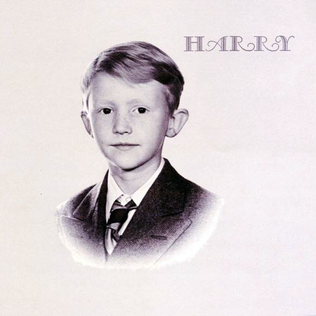
Harry is the fourth studio album by Harry Nilsson, released August 1969 on RCA. It was his first album to get onto Billboard Magazine's Billboard 200 chart, remaining there for 15 weeks and reaching #120.

Nilsson Sings Newman is the fifth studio album by American singer-songwriter Harry Nilsson, released in February 1970 on RCA Victor. It features songs written by Randy Newman. Recorded over six weeks in late 1969, the album showcases Nilsson's voice multi-tracked in layers of tone and harmony. Its arrangements are otherwise sparse, with most of the instrumentation provided by Newman on piano. The record was not a great commercial success, but won a 1970 "Record of the Year" award from Stereo Review magazine. The LP record cover art was illustrated by Dean Torrence.
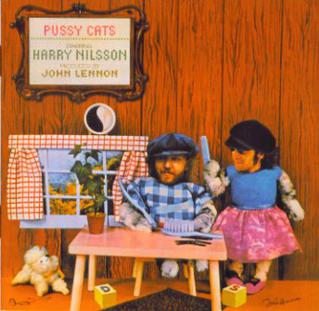
Pussy Cats is the tenth album by American singer Harry Nilsson, released by RCA Records in 1974. It was produced by John Lennon during his "Lost Weekend" period. The album title was inspired by the bad press Nilsson and Lennon were getting at the time for being drunk and rowdy in Los Angeles. They also included an inside joke on the cover – children's letter blocks "D" and "S" on either side of a rug under a table − to spell out "drugs under the table" as a rebus.

Ringo Rama is the thirteenth studio album by Ringo Starr, released in 2003.
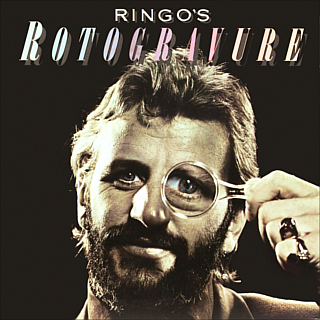
Ringo's Rotogravure is the fifth studio album by Ringo Starr, released in 1976. It was the last project to feature active involvement from all four former Beatles before John Lennon's murder in 1980, and the second of two projects following the band's 1970 breakup to hold the distinction. Following the end of his contract with EMI, Starr signed on with Polydor Records worldwide.

Just Fred is the second solo album by the American musician Fred Schneider, released in 1996. Its first single was "Bulldozer". Schneider promoted the album by playing shows with his band, the Slobs.
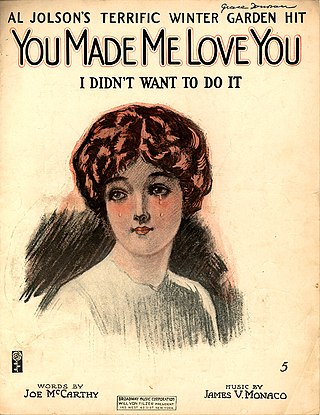
"You Made Me Love You (I Didn't Want to Do It)" is a popular song from 1913 composed by James V. Monaco with lyrics by Joseph McCarthy. It was introduced by Al Jolson in the Broadway revue The Honeymoon Express (1913), and used in the 1973 revival of the musical Irene.
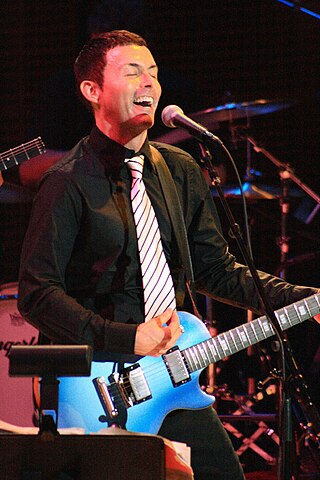
Richard Barone is an American rock musician who first gained attention as frontman for the Bongos. He works as a songwriter, arranger, author, director, and record producer, releases albums as a solo artist, tours, and has created concert events at Carnegie Hall, Hollywood Bowl, SXSW, and New York's Central Park. He teaches the course “Music + Revolution” at The New School's School of Jazz and Contemporary Music, has served on the Board of Governors of The Recording Academy (GRAMMYs), serves on the Advisory Board of Anthology Film Archives, and hosts the "Folk Radio" show on WBAI New York.

"Everybody's Talkin' (Echoes)" is a song written and recorded by American singer-songwriter Fred Neil in 1966 and released two years later. A version of the song performed by American singer-songwriter Harry Nilsson became a hit in 1969, reaching No. 6 on the Billboard Hot 100 chart and winning a Grammy Award after it was featured in the film Midnight Cowboy. The song, which describes the singer's desire to retreat from the harshness of the city to a more peaceful place and an easier life, is among the most famous works of both artists, and has been covered by many other notable performers.

"One" is a song by American singer-songwriter Harry Nilsson from his 1968 album Aerial Ballet. It is known for its opening line "One is the loneliest number that you'll ever do". Nilsson wrote the song after calling someone and getting a busy signal. He stayed on the line listening to the "beep, beep, beep, beep..." tone, writing the song. The busy signal became the opening notes.
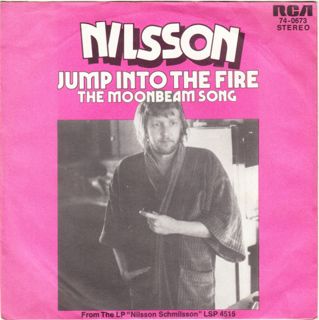
"Jump into the Fire" is a song by American singer-songwriter Harry Nilsson from his 1971 album Nilsson Schmilsson. It was also issued as the album's second single, after "Without You", and peaked at number 27 on America's Billboard Hot 100 chart and number 16 in Canada.
"This Could Be the Night" is a song recorded by the American band Modern Folk Quartet (MFQ) in 1965. The lyrics describe a couple on the verge of conquering their inhibitions. Written in tribute to the Beach Boys' leader Brian Wilson, the song is one of three that are credited jointly to Harry Nilsson and Phil Spector, although Nilsson submitted that he was the sole writer on a 1966 copyright form.
"Life Itself" is a song by English musician George Harrison from his 1981 album Somewhere in England. Harrison also included it on his 1989 greatest-hits compilation Best of Dark Horse. As a love song to God, the track served as the artist's most overtly religious musical statement since 1974. The lyrics offer praise to Christ, Vishnu, Jehovah and Buddha, thereby marking a return to the concept of a universal deity, regardless of religious demarcation, that Harrison had first espoused in his 1970 hit single "My Sweet Lord".
"Spaceman" is a song written and recorded by the American singer-songwriter Harry Nilsson, released on his 1972 album Son of Schmilsson.

"You're Breakin' My Heart" is a song by American singer-songwriter Harry Nilsson, appearing on his 1972 album Son of Schmilsson. It is notorious for the opening line, "You're breakin' my heart / You're tearin' it apart / So fuck you".
















